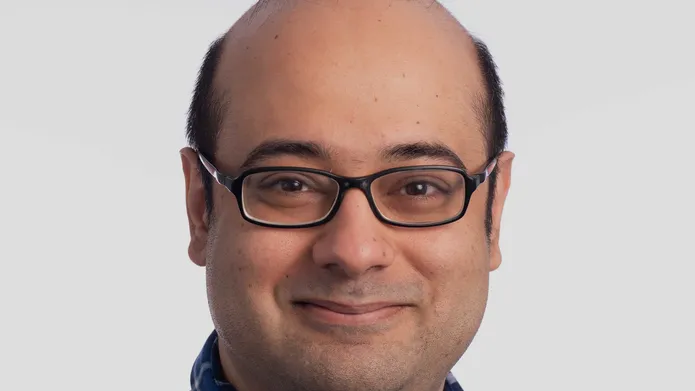News
Dundee Researcher Secures £150k Funding to Advance Experimental Brain Cancer Drug
A researcher from University of Dundee School of Medicine has been awarded the Rosetrees Trust Translational Award to continue ground-breaking work on a new brain cancer drug.
Published on 30 January 2025

The £149,944 pot of funding will help progress development of a promising new anti-cancer drug designed to target high-grade brain cancers in both adults and children.
This drug, which uses a multi-targeted approach, is specifically engineered to overcome the challenges of brain tumours, including drug resistance and relapse.
Dr Sourav Banerjee, a UKRI Future Leaders Fellow and group leader at the School of Medicine’s Division of Cancer Research, has worked on developing and refining this new multi-targeted drug since 2021. The drug has shown promise by doubling survival times in preclinical brain cancer mice.
Dr Banerjee said, “Treatment options for brain cancers are extremely limited with nearly a 99% failure rate. Our research builds on decades of understanding why existing cancer drugs specifically fail in brain cancer. This funding will help us move closer to providing new hope for patients facing this devastating disease.
“The drug’s anti-cancer targeting strategy was designed at Dundee and developed jointly with the University of Arizona. We are thrilled that Rosetrees Trust has provided this critical bridge funding to take our research closer to human trials. It is difficult to acquire academic funding for drug discovery projects, and we are elated that the trust saw the potential in our work.
“We need to be cautious about getting too excited about any new cancer drug, sadly the vast majority of cancer drugs fail in clinical trials before reaching the market. However, we need to stay optimistic and continue to work hard. Hopefully, one day, it will save lives.”
Unlike conventional treatments repurposed from non-brain cancers, this drug has been purpose-designed to penetrate the blood-brain barrier and tackle the unique biology of brain tumours. It also shows potential in treating certain subtypes of blood, breast, lung, and gut cancers.
The funding from Rosetrees Trust will allow the team to stabilise the drug’s oral formulation, and achieve essential milestones to progress towards human trials within five-six years.
A spokesperson for the Rosetrees Trust said, “Rosetrees is delighted to support Sourav Banerjee with this Translational Fellows award. These awards are designed to accelerate research with the potential for real clinical impact, and we believe Sourav’s work on developing much-needed new drugs for brain cancer has great promise. We are excited to see this research progress toward clinical trials and ultimately bring hope to so many patients in need.”
The promising research is in collaboration with the University of Arizona, Edinburgh, Glasgow, and Cambridge and spans from laboratory models to collaborative work with NHS Tayside Neurosurgery through the CNS Live brain tumour collection program, which provides critical resources for studying human brain cancer cells.
For more information on Dr Banerjee’s research, visit the School of Medicine’s website or watch the video below.